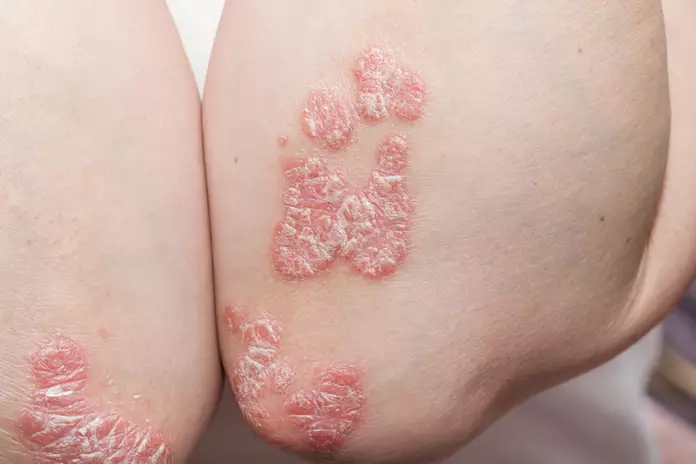Psoriasis: What It Is, Symptoms, Causes, Types & Treatment
Psoriasis is a chronic disease that affects millions of people worldwide. According to recent statistics, approximately 125 million individuals suffer from this skin condition. It affects people across the globe and of all ages and genders – with the majority being diagnosed between 15 and 35. It is not contagious but can cause discomfort and self-consciousness due to its visible appearance on the skin.
The disease occurs when the immune system overreacts, causing inflammation and an acceleration in skin cell growth. This results in red, scaly patches on various parts of the body such as scalp, elbows, knees, or nails. In some cases, psoriasis can also lead to joint pain known as psoriatic arthritis.
What is Psoriasis?

It is a chronic autoimmune (in which body cells start attacking healthy cells) disease that affects the skin. It causes cells (dermis) to build up rapidly on the surface of the skin. The condition forms scales and red patches that are often itchy and painful. It is not contagious, but it can be hereditary. (1)
The exact cause of this autoimmune disease is unknown, but it is related to an immune system malfunction. People with psoriasis may have overactive T cells in their body, which trigger inflammation and rapid skin cell growth. Certain environmental factors, such as stress or injury to the skin, can also trigger flare-ups.

